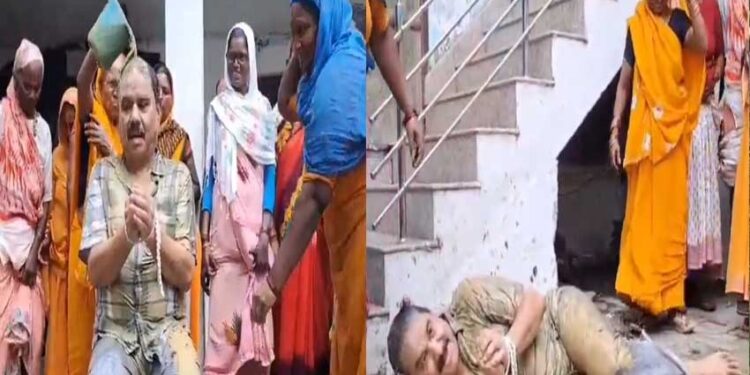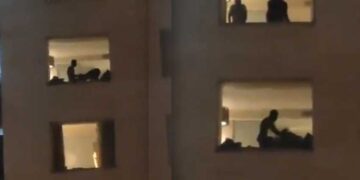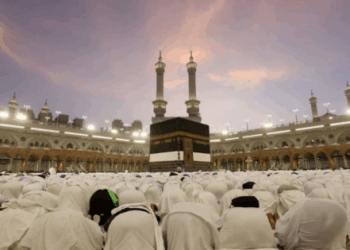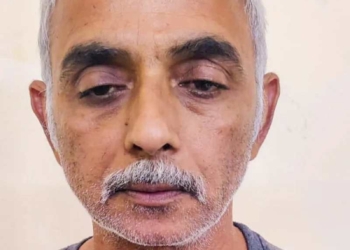Ganti Mohana Chandra Balayogi (English: Ganti Mohana Chandra Balayogi, born: 1 October, 1951 – died: 3 March, 2002) was an Indian lawyer, politician and former Speaker of the Lok Sabha. Ganti Mohan Chandra Balayogi has the honor of being elected Speaker of the Twelfth Lok Sabha and unanimously re-elected Speaker of the Thirteenth Lok Sabha.
As a Speaker, he made a significant contribution not only in maintaining the prestige and dignity of this high post but also in strengthening the parliamentary institutions in the country.
Balayogi was born on 1 October 1951 to Mr. Ganniyya and Mrs. Satyamma, belonging to a farming family, in a small village named Yedurulanka situated on the banks of the majestic and mighty Godavari River in the Konaseema region of East Godavari district, Andhra Pradesh. Among his three siblings, he has an elder sister and a younger brother. Balayogi received primary education from Guttenadivi village as there was no school in his village. He received his graduation from Kakinada and postgraduate and law degrees from Andhra University, Visakhapatnam. Balayogi started his legal career as an advocate in Kakinada in 1980 under the guidance of Shri Gopalaswamy Shetty. In the year 1985, he was selected as first class magistrate. But he resigned from the service and returned to practice law in Kakinada.
The year 1982 saw the “NTR wave” in Andhra Pradesh when popular cinema hero N.T. Rama Rao entered politics and formed the Telugu Desam Party. At that time many educated and young Andhra people joined that wave and Balayogi also joined as a worker of the newly formed party. He gained political recognition and responsibility soon after when he assumed the charge of Vice Chairman of the Co-operative Town Bank of Kakinada in 1986. He was elected Chairman of East Godavari District Praja Parishad in the year 1987 and he remained on the same post in 1991 until political fortunes took him to a higher position in the same year.
Balayogi began his career as an MP when he was first elected to the Tenth Lok Sabha from Amalapuram constituency in 1991 on a Telugu Desam Party ticket. On becoming a member of the Lok Sabha for the first time, Balayogi took keen interest in understanding the rules and procedures of the House and also participated in the proceedings of the House. Balayogi lost this seat in the 1996 general elections. However, this defeat did not break his courage and he continued to work with determination and great enthusiasm to serve the people. He was soon elected member of the Andhra Pradesh Legislative Assembly in the by-election from Mummidivaram Legislative Assembly constituency. After that he was appointed Minister of Higher Education in the Government of Andhra Pradesh. As a minister he made sincere efforts to strengthen and rationalize the education system. He believed that the role and responsibilities of education and training in the context of employment should be carefully defined. He also believed that education should be in line with the social functions and economic roles of the educated person.
Balayogi contested the 1998 general election as a Telugu Desam Party candidate from his old constituency, Amalapuram, and was elected to the Lok Sabha for the second time, winning the election with an overwhelming majority of 90,000 votes. He was destined to hold a big position in national politics and with the support of the ruling coalition, he emerged as a successful candidate for the post of Speaker of the Lok Sabha. Balayogi was elected to the important post of Speaker of the Lok Sabha on March 24, 1998, at a very critical period in the political history of the country. The Telugu Desam Party, to which he belonged, was supporting the coalition government from outside. At that time the structure of the Assembly was very complex as no party had a clear majority and there were representatives of about 40 political parties in the Assembly. In the present form of the House, with almost equal numbers of members from the ruling coalition and the opposition, Speaker Balayogi, who was the youngest person ever to hold this position, found himself in a very difficult situation. Analyzing this scenario on assuming the post of Speaker, he remarked that our country is going through a phase of socio-political change and in line with this change, the structure of the House has also been changing for the last several years. Balayogi ji strongly believed that the legislature is an effective instrument of social change and the members have to play an important role in taking this process of change forward and providing guidance for the future development of the country.
Balayogi ji, who had a gentle and soft-spoken personality, was a person who was very happy to find himself among people. This can be easily seen from his willingness to always be ready to attend small and big functions. He was full of energy, which was why he remained fresh even after working the whole day. His desire to remain connected with the people led to his close association with various social, cultural organizations and activities in the Konaseema region of Andhra Pradesh.
Whatever position Balayogi held, whether as a Member of the Lok Sabha or a Member of the Legislative Assembly or a Minister or Chairman of the Zilla Praja Parishad, he discharged his duties efficiently and with ease. He believed that people living public life have a special responsibility to maintain ethical norms and moral values. Sticking to his statement, he resigned from the post of Higher Education Minister of Andhra Pradesh, taking moral responsibility for the alleged controversy regarding the leaking of question papers in the intermediate examinations in the state. It was a decision that was widely praised as an example of maintaining integrity in public life. But the Chief Minister did not have even the slightest doubt about his honesty, hence he rejected his resignation and Balayogi was asked to continue in his post.
When Balayogi was at the peak of his popularity, the cruel hands of time snatched him away from us. Sri Balayogi died in a helicopter crash on March 3, 2002 in Kaikalur, West Godavari district, Andhra Pradesh.










